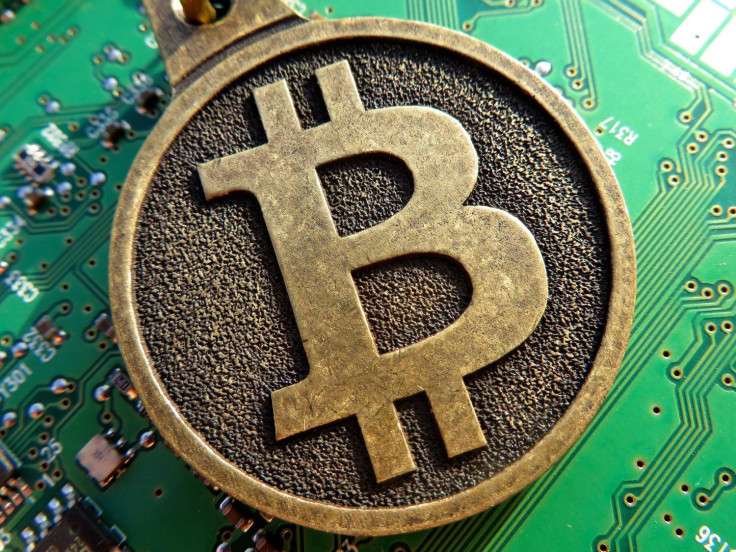Bitcoin tumbler: The business of covering tracks in the world of cryptocurrency laundering

Has the role of the professional money launderer found its virtual counterpart in the form of the bitcoin tumbler?
Prima facie, the idea of tumbling together bitcoin transactions – a technique which recently gained global exposure in the trial of Silk Road's Ross Ulbricht – seems to bear some similarity to traditional money laundering strategies.
The layering of accounts within trusts and off-shore shell companies could be compared to layers of encryption, or the levels of complexity offered by circulating your bitcoins from one wallet provider to another.
The Laundrymen - Inside Money Laundering, The World's Third Largest Business - buy on Amazon
BitCon: The Naked Truth About Bitcoin - buy on Amazon
The actual mixing together of transactions to make them harder to trace sounds like the "smurfing" of deposits, where large cash sums are split up and placed into the financial system by groups of individuals to avoid generating suspicious transaction reports.
But such an analogy would be a category error, according to Jeffrey Robinson, author of bestseller The Laundrymen, and more recently, Bitcon: The Naked Truth About Bitcoin.
Robinson sees bitcoin as better suited to traditional capital flight:
Bitcoin is a lousy way to launder money, as I've always said. [Bitcoin tumbling] doesn't change the nature or look of the money. But it obscures the trail when moving it from A to B via addresses. It's a good way to collect terrorist funds because it's completely opaque, which is why we are hearing about bitcoin and Isis funding. The tumbler/anonymiser market is a tough one. Made all the more complicated by new coins coming on stream that are anonymous.
Bitcoin is not completely anonymous
It perhaps comes as a shock to some people that bitcoin is not the completely anonymous coin of the dark realm, where it's used to buy drugs and arrange contract killings. Unlike other currencies, every single bitcoin transaction is stored on a publicly accessible ledger.
In fact the inherent means by which bitcoin can be used to comply with anti-money laundering rules is often cited positively in respect of its transactional indelibility on the blockchain. It improves transparency, say advocates in the digital payments industry; providing pseudonymity (as opposed to anonymity) means it would be too risky for criminals to use.
You don't have to be a criminal to consider tumbling your bitcoin transactions, however - just someone who wants to thoroughly exercise their right to privacy. But bitcoin tumbling strategies when subjected to close reading can be unpicked, provided you have the time and energy.
The simplest approach is to look for common flow patterns. For instance, a pattern of three small deposits to a dark web market on the same day can be traced to a larger deposit, minus the commission taken by the tumbling service.
"If 1.2 bitcoin left Silk Road to an unknown address, and Ulbricht received 1.1752157 bitcoin five hours later, this is suggestive. Add in thousands of such coincidental transactions and a pattern will emerge," notes one bitcoin user.
These tumblers produce clusters or groups of "independent" addresses that are identifiable with a single owner. Even if a tumbler uses multiple independent pools of bitcoin, each pool can be identified.
Once you have the size of the actual deposit, the next step involves laboriously working through lists of addresses: some belonging to miners, some to exchanges and so on, until you can find the transaction for that particular amount.
Simple right? Robinson thinks not:
The idea of tumblers makes the so-called transparency of the blockchain completely opaque. In any sort of police investigation that starts with the block chain will find it meaningless. You have to start at the bottom with dates, time and addresses and work through it. Silk Road (like all investigations that involve bitcoins) had to be investigated from the bottom up. Starting with the blockchain is useless.
Bitcoin tumblers win admiration for their pure front
Whatever the case, bitcoin tumbling services are readily available, asking between 1% and 3% of transaction values to subsume times and amounts within a load of other transactions.
And they are widespread: apparently some 13% of all bitcoin addresses are tainted with Silk Road coins, even if they have never visited the site, according to expert witness testimony at Ulbricht's trial.
IBTimes UK contacted some bitcoin tumbling services to find out more about this burgeoning market, but unsurprisingly didn't receive any response.

However, the more established tumbling services such as Bitcoin Fog want to project an image of professionalism. The company's website, which can be accessed using the Tor browser, states:
"There have been a couple of similar services before, and as we see it, the problem with most of them was that they were not professional enough, not secure enough, and not taken seriously, thus becoming subjects to easy hacking and other problems.
"We on the other hand, are here for the long run. Our team consists of professional secure web application developers with 5-10 years' experience, and we have built this solution from scratch with security being our number one concern," it says.
Once the user has registered their money on a Fog account, "each withdrawal will be split in a random number of payouts, depending on the amount, and the relative size of each payout will be randomised as well. Even the timing of those payouts will be randomly spread out over a period of time you will specify".
The bitcoin community may disagree about the effectiveness of such services. That said, bitcoin tumbling fits the renegade mould of cryptocurrency libertarianism, and also these sorts of operations seem to win a degree of admiration for their pure front.
One commentator said: "The tumblers know their s**t doesn't work, why would they care if they get 1-3% off every transaction that goes through them though? I can't even blame them for trying (and succeeding)."
However, like traditional money laundering, Robinson said services like this should be outlawed:
Law enforcement can't do much, but legislatures and the courts can do plenty... like make the use of such things illegal, and put stiff criminal penalties and heavy fines on anyone who is found using them in a criminal case. It might even fall within the boundaries of the money laundering laws
© Copyright IBTimes 2025. All rights reserved.





















